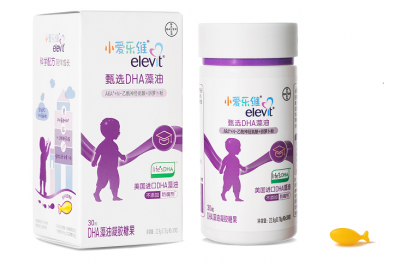Combination of calcium supplementation and low-dose aspirin could prevent preeclampsia in high-risk women

During pregnancy, the coagulation system and platelet activation are prone to dysfunction, causing blood hypercoagulability and ultimately leading to preeclampsia.
While aspirin is a first-line drug for the prevention of preeclampsia, extensive clinical data has shown that the efficacy of low-dose aspirin alone in preventing the condition in high-risk pregnant women has considerable scope for improvement.
At the same time, the World Health Organization recommends calcium supplementation as a preventive measure for preeclampsia, especially for expectant mothers with low blood calcium levels or inadequate dietary calcium intake.
Due to a lack of systematic studies on the use of aspirin alongside calcium supplements in averting preeclampsia, two Chinese researchers performed a meta-analysis to evaluate the effectiveness of this combination therapy.
Seven randomised controlled trials (RCTs), involving a total of 1,136 pregnant women, were included in the meta-analysis.
The databases from China National Knowledge Infrastructure, VIP, Wanfang, PubMed, EMBASE, and Cochrane Library were searched from inception till December 2022.
Six studies reported on preeclampsia and gestational hypertension. Compared to the control group, the experimental group had lower incidence rates of preeclampsia with gestational hypertension (OR: 0.17, 95% CI: 0.11-0.28, P < .001), preeclampsia (OR: 0.20, 95% CI: 0.10-0.37, P < .001), and gestational hypertension (OR: 0.15, 95% CI: 0.07-0.31, P < .001).
In addition, it was found that the combination of low-dose aspirin and calcium supplementation also decreases the risk of adverse maternal and foetal outcomes.
Among the seven studies, the experimental group had a lower incidence of premature birth than the control group (OR: 0.26, 95% CI: 0.16-0.44, P < .001).
Five studies reviewed the rate of postpartum haemorrhage, and discovered that the experimental group had a lower incidence of postpartum haemorrhage (OR: 0.15, 95% CI: 0.08-0.27, P < .001) than the control group.
In terms of foetal growth restriction, four studies indicated that the experimental group had a lower incidence (OR: 0.16, 95% CI: 0.08-0.33, P < .001) than the control group.
“The results of our analysis showed that in comparison with routine interventions or low-dose aspirin alone, low-dose aspirin combined with calcium supplementation significantly reduced the incidence of preeclampsia and other pregnancy complications.
“These findings have clinical implications prevention of preeclampsia that are consistent with previous research. Nevertheless, further exploration and confirmation [of the findings] are warranted,” the authors wrote.
Consensus on calcium needed
Based on data from epidemiological studies, 3% to 6% of pregnant women develop preeclampsia, a leading cause of maternal and neonatal deaths.
Patients are often diagnosed when the condition is already severe, and thus, early prevention of preeclampsia is crucial for the safety of both mother and child.
Low-dose aspirin reportedly inhibits platelet adhesion and aggregation, impedes the formation of thromboxane A2 (TXA2), and reduces the sensitivity of peripheral blood vessels to active substances, thereby promoting vasodilation and lowering blood pressure.
On the other hand, the preventive effect of calcium on preeclampsia may be due to low serum and high intracellular calcium concentrations in preeclamptic pregnant women, which can lead to an increase in blood pressure.
The degree of vascular spasm and contraction could be reduced by appropriate calcium supplementation. Furthermore, calcium is an essential nutrient that supports many functions in the body, including bone growth.
However, the role of calcium in preventing preeclampsia has not reached a consensus among researchers.
“Conflicting findings from previous studies may be related to the different doses and timing of calcium supplementation. Therefore, further large-scale multicentre studies are needed to verify whether calcium can reduce the incidence of preeclampsia,” the authors reiterated.
Source: Medicine
https://doi.org/10.1097/MD.0000000000034620
“Clinical efficacy of low-dose aspirin combined with calcium in preventing preeclampsia: A systematic review and meta-analysis”
Authors: Wen-Yue Chen, et al














